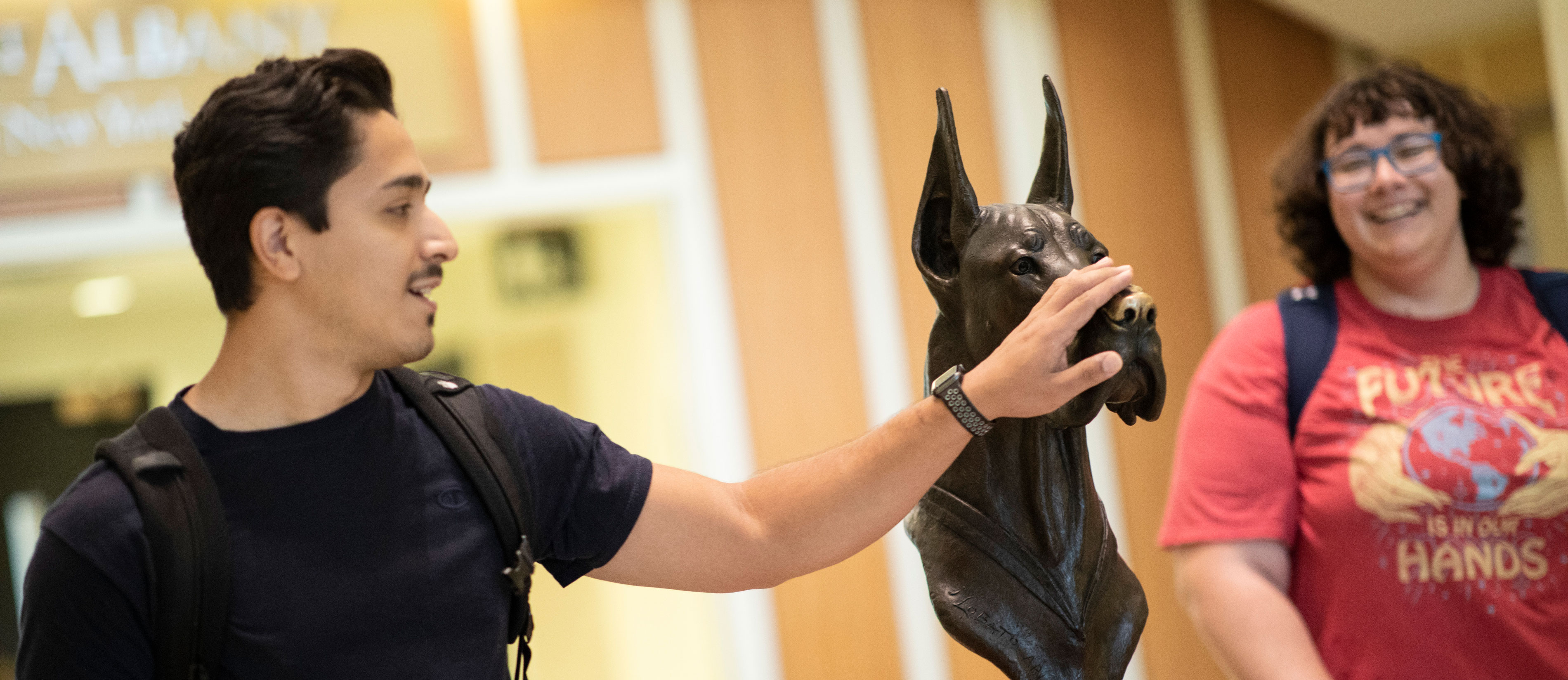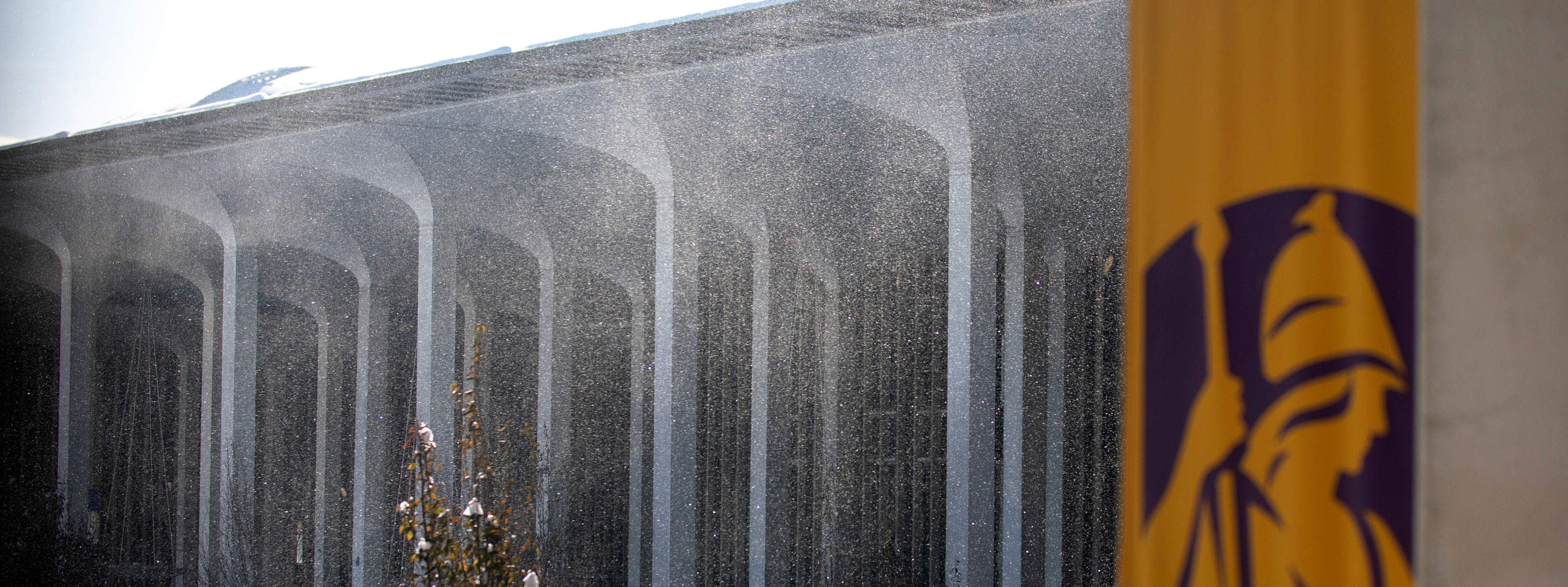Off-campus Student Services Newsletter: January 2024

Learn more about Off-campus Student Services.
Events
Off-campus Events
-
Military Medicine: Vietnam to Present: 10 a.m. to 4 p.m. weekdays at the Vietnam Memorial Gallery inside the Robert Abrams Justice Building on the Empire State Plaza
-
The Tower That Never Was: 7 a.m. to 7 p.m. weekdays on the New York State Capitol's second floor
-
Empire State Plaza Ice Rink: Tuesdays through Sundays (hours vary based on day of week) outside on the Empire State Plaza
-
Empire State Farmer Market: 10 a.m. to 2 p.m. Wednesdays indoors on the South Concourse of the Empire State Plaza
On-campus Events
- Great Dane-A-Palooza: 4:30 to 6:30 p.m. Tuesday, January 16, 2024, at Broadview Arena

Winter Driving Safety
-
Ensure your vehicle is in good condition. Check the battery, brakes, tires, windshield wipers and fluids.
-
Consider using winter tires with deeper treads for improved traction on snow and ice. Check your tire pressure regularly.
-
Reduce your speed and increase your following distance to allow for longer stopping distances.
-
Avoid sudden movements, such as quick acceleration, braking or sharp turns.
-
Brake gently to avoid skidding. If you have antilock brakes, apply steady pressure, and let them do the work.
-
Completely clear your windows, mirrors and lights of snow and ice before driving. Remove snow from the roof of your car to prevent it from sliding onto your windshield while driving. This is for your safety and the safety of others on the road.
-
Turn on your headlights, even during the day, to increase visibility for other drivers.
-
Use your fog lights, if necessary, but do not use high beams in heavy snow as they can reflect, reducing visibility.
-
Carry a winter emergency kit — including a blanket, flashlight, extra clothing, food and water — and have a fully charged phone and a car charger with you.

Emergency Contact & Residence Registry
UAlbany will be emailing an Emergency Contact & Residence Registry form to all off-campus students.
The University uses this information to better support its off-campus students, helping staff respond effectively and provide timely information in the case of an emergency.
Please provide the physical address of where you reside while attending UAlbany, not your permanent address (unless you reside at your permanent address when class is in session).
All off-campus students must complete this form and will receive reminders until they do.

How to Stay Healthy during Winter
Staying healthy during winter involves taking care of your physical and mental well-being. Here are some points to help guide you.
Physical Health
-
Stay Hydrated: Drink plenty of water, even though it is cold. Dehydration can still occur in winter.
-
Eat a Balanced Diet: Consume a variety of fruits, vegetables, and whole grains to get essential nutrients.
-
Boost Immunity: Eat foods rich in vitamin C (such as citrus fruits and berries) and zinc (such as nuts, seeds and legumes) to support your immune system.
-
Regular Exercise: Engage in regular physical activity to keep your body active and maintain a healthy weight.
-
Dress in Layers: Dress appropriately for the weather to prevent hypothermia and/or frostbite. Layering also helps regulate body temperature.
-
Hand Hygiene: Wash your hands frequently to prevent the spread of germs and viruses.
-
Adequate Sleep: Ensure you get enough sleep to support overall health and immune function.
Mental Health
-
Sunlight Exposure: Spend time outdoors during daylight to get natural sunlight, which can improve mood and regulate sleep patterns.
-
Socialize: Stay connected with friends and family to combat feelings of isolation and loneliness.
-
Manage Stress: Practice stress-reducing activities such as meditation, deep breathing and yoga.
-
Set Realistic Goals: Break down tasks into manageable steps to avoid feeling overwhelmed.
-
Maintain Hobbies: Engage in activities you enjoy to boost mood and reduce stress.
-
Stay Informed: Stay updated on current health guidelines and information about seasonal illnesses.
-
Ask for Support: If you are feeling down, do not hesitate to seek support from friends, family or a mental health professional.
General Tips
-
Flu Vaccination: Consider getting a flu vaccine to protect yourself and others from seasonal influenza.
-
Stay Warm Indoors: Ensure your living space is adequately heated to avoid temperature-related health issues.
-
Stay Informed: Keep up to date with weather forecasts and be prepared for extreme conditions.
Remember that individual health needs may vary, and it is always a good idea to consult with healthcare professionals for personalized advice.


